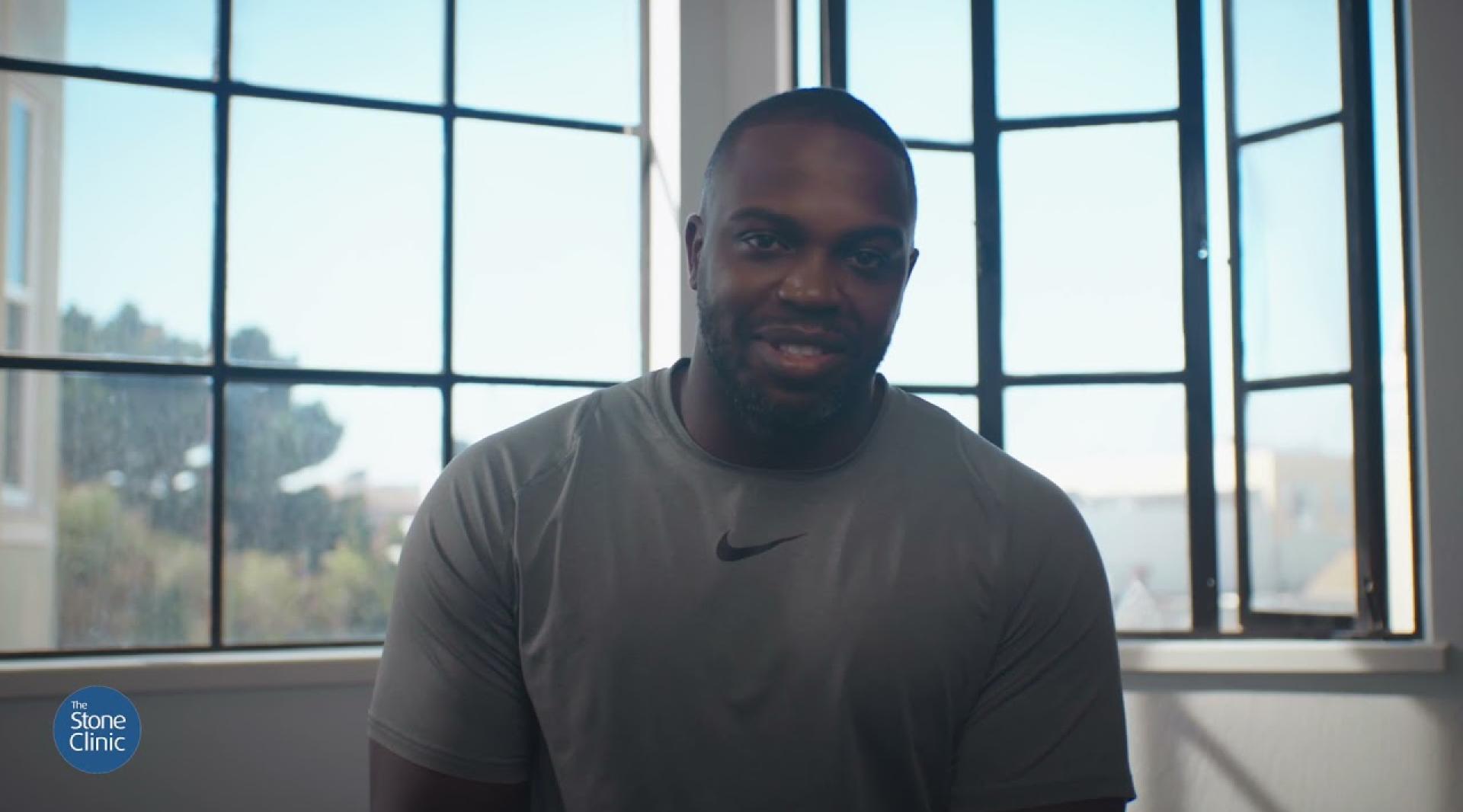Weightlifter returns to training after BioKnee
I got injured because of over-training lifting and playing too much basketball. That was actually on a cut too. So I was doing this over the course of like five or six months. And so I'm already at a calorie deficit and training for 120 minutes, and then I'll go play basketball for like 30 minutes. And that was just too much for my body to handle. You know, the quality of care is a lot higher than what you would get through a network doctor. That's kind of why I ended up here was because of the experiences that I had up until this point. The in-network doctors, five doctors looking at the same MRI, the pain that I was feeling in my knee and the swelling I was feeling, didn't match up to what I was being told. Every single doctor telling me, you're fine, you're fine. You're fine. So I just kept going and doing what I was doing before playing basketball, running weightlifting, and just tearing apart my meniscus the whole time. And the swelling got worse and worse and worse. And I think as a patient and in the healthcare system, we have, you have to be very assertive on what you're, what you want to have done. And I did not do that.
Brian is a super fit athletic guy who tore his meniscus. A surgeon tried to repair it. Unfortunately, the repair failed and then took out a chunk of his meniscus. So he presented with knee pain, lacking the shock absorber of the meniscus, prevented him from pushing forward with his weight training program. His fitness program, her decision was to replace the meniscus with a meniscus allograft. He pushed the limits in his rehab, uh, uh, accelerating every part of it and has returned to a really an Olympic level of weightlifting.
Recovering from knee surgery is very humbling and it's the most mentally challenging thing I've ever had to go through in my life. Coming here was, um, a much more different experience. Dr. Stone has got his own MRI machine, you know, they go in there, pre-surgery, post-surgery make sure everything looks good. His staff here is amazing. Very nice. Everyone remembers your name, athletic directors, amazing as well. You want to make sure that your goal is to get back to where you were before, or maybe even better. The surgery part is very important. The PT part, I would almost say is more important, what you do for PT, and then what you do on your own time that's really going to get you over the hump. Before The Stone Clinic, I could not exercise. I could just walk. After The Stone Clinic, I'm already back in the gym, lifting again, and that feels really good. I just started running again and have a much more active life. Everybody's surgery should be this way. This is how a patient should feel after surgery.
Brian W. Profile
For Brian, high-level sporting activity is a way of life. Reducing physical activity, managing pain, and waiting for a knee replacement were not acceptable solutions to his meniscus injury. After failed repairs elsewhere, Brian traveled to The Stone Clinic from out of state to receive a biologic knee replacement or a BioKnee. Dr. Stone replaced his meniscus with a donor meniscus, allowing Brian to return to an active lifestyle. Under the careful guidance of our StoneFit team, Brian is back to weightlifting and running here at 6 months after his surgery—all while avoiding a knee replacement.


